Business
Is there any hope for Nigeria’s Naira?
Published
3 months agoon
By
Marcel Okeke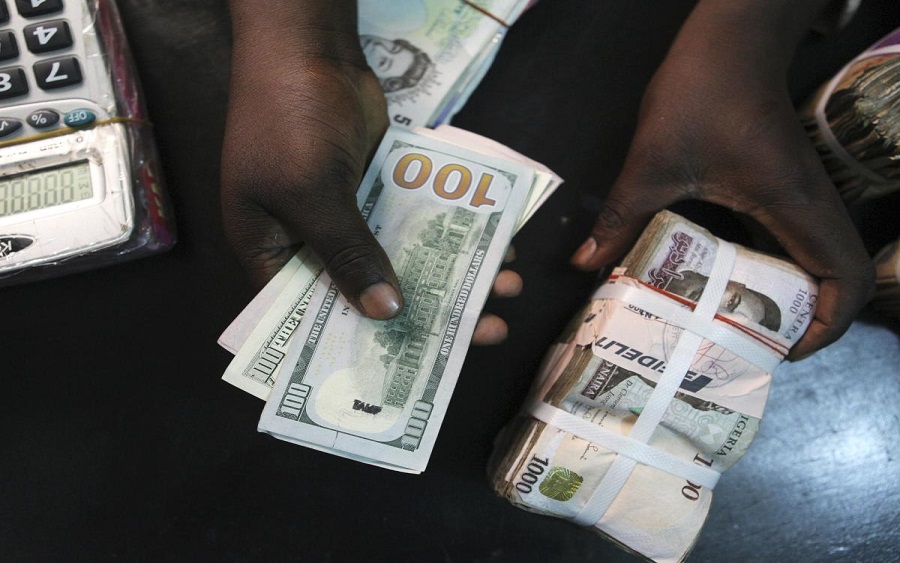
The last few days in January 2024 saw Nigeria’s national currency—Naira—experience the worst crash ever in value against the US dollar and other hard currencies. From slightly below N900/$ on Monday, January 29, the Naira exchange rate nosedived to nearly N1,500/$ on Wednesday, January 31, 2024. This is about 200 per cent decline in value vis-à-vis the about N500/$ that was the (official) exchange rate in June 2023, when the national currency was put on free float by the monetary authorities. The Naira value (N1,500/$) is also already about double the exchange rate (N750/$) assumed in the 2024 Federal budget.
Unfortunately, the end to this free fall trajectory of the national currency in the foreign exchange (forex) market is not yet foreseeable. Although the ineluctable fate that has befallen the Naira is unsettling stakeholders and operators in the Nigerian economy, the real causes of the crash of the currency are not amenable to any short-term solution. Thoroughly rattled by the collapsing Naira and crumbling economy, the Senate Committee on Banking, Insurance and Other Financial Institutions had to issue a summons on the Governor of the Central Bank of Nigeria (CBN), Mr. Olayemi Cardoso to come ‘educate’ them on the state of the economy, and particularly explain the fate of the Naira.
While Cardoso is being expected to address the Senate panel on Tuesday, February 6, 2024, Bureau de Change (BDC) operators (Abuja Chapter) announced the closure of their business premises indefinitely from Thursday, February 1, 2024. Chairman of the Association, Abdulahi Dauran said the scarcity of dollars was responsible for the development, adding that “online business transactions and cryptocurrency trading are responsible for the scarcity of dollars” in the forex market.
Truly, it is the worsening scarcity of the green back in the forex market that has been the core cause of the free fall of the Naira against all hard currencies. The full floatation of the Naira in June 2023 by the Federal Government (via the CBN) implied the currency was literally thrown into the ‘boxing arena’ for an open bout with the dollar and others. Put differently, the CBN said Naira value vis-à-vis the dollar would be determined by market forces (demand and supply)—through the interaction of “willing seller, willing buyer.”
But the crashing Naira in the last days of January 2024 has put even the apex bank in a panic mode. Thus, while Mr. Cardoso is yet to appear before the Senate Committee, the CBN, in what seems like a fire brigade outing—has turned the heat on the Deposit Money Banks (DMBs)—to check the Naira free fall in the forex market. On the last day in January, the CBN issued a circular to the DMBs, detailing steps they must take immediately to curtail the “growth in foreign currency exposures of banks through their Net Open Position (NOP).” The apex bank warned that the extant situation had created an incentive for banks to hold “excess long foreign currency positions, which exposes banks to foreign exchange and other risks.”
The CBN therefore ordered the DMBs to sell their “excess dollar stock” latest on Thursday, February 1, 2024, to checkmate “hoarding excess foreign currencies for profit.” The apex bank had in the circular titled “Harmonization of Reporting Requirements on Foreign Currency Exposures of Banks,” raised concerns over what it termed “the growing trend of banks holding large foreign currency positions.” In a state of panic over the collapsing Naira, the apex bank had a day earlier (on January 30, 2024) issued a circular in which it warned banks and forex dealers against “reporting false exchange rates, among others.”
In the same panic mode, while the Naira keeps crashing against the dollar and others, the substantive Minister of Petroleum Resources who is also the President and Commander-in-Chief of Nigeria Armed Forces, Bola Ahmed Tinubu, a few days ago, ordered the CBN to take over crude oil sales from the Nigeria National Petroleum Company (NNPC) Limited. This is apparently to deal decisively with the long-held suspicion that the NNPC has not been transparent in recording and accounting for forex inflow from Nigeria’s crude oil sales. Time shall tell how this works out; after all, over the years, it is the NNPC that has the structure and logistics to monitor oil at loading/export points, etc.
However, while the apex bank is at liberty to do what it considers necessary to save the collapsing Naira, the fact remains that the national currency and the Nigerian economy are facing largely structural problems. Here, I want to cull some paragraphs from my article (titled: Floating Naira: Death Knell for Nigerian Economy?) published in The Guardian (Nigeria) on 21 June 2023, to buttress my points:
“As a country, Nigeria has been largely import-dependent: a large proportion of the citizenry having preference for foreign goods and services; factories importing machineries and raw materials; Nigerians in their numbers going for foreign degrees and certifications and paying in hard currencies, etc. This reality and preferences exist side-by-side with scarcity of dollar and other foreign currencies over the years. The country has largely been a mono-product economy—depending almost entirely on earnings from crude oil export.
“No substantial foreign exchange inflow from the export of non-oil items. Indeed, successive administrations had in reality paid only lip service to ‘effective diversification’ of the national economy. Year-in-year-out, the national budget is couched on the assumptions of the volume, value and price of crude oil in the international market. Yet, as a member of the Organization of Petroleum Exporting Countries (OPEC) since 1971—Nigeria neither fixes the price at which to sell her oil nor determine the volume of oil to bring to the market.
“Besides, the oil and gas sector in the country is consistently confronted with motely intractable problems: bizarre oil theft phenomenon in recent times, to which the country loses approximately seventy per cent of her oil output; widespread vandalism of oil installations and assets; outright sabotage, among other issues. All these combined, had whittled the nation’s oil production capacity—leading to her inability to meet OPEC-allocated quota for a long while now. Again, all these lead to diminishing earnings (forex inflow) from crude oil sales. And not much comes from non-oil exports!
“The consequence of all these has been lingering shortage of foreign exchange in the forex market: gross undersupply of forex vis-à-vis huge demand. Arbitrary fixing of the exchange rate (especially Naira to dollar) and multiplicity of exchange rates and ‘black markets’ have been the order of the day in Nigeria over the years. In this milieu, the monetary authority applies usually ‘unorthodox’ methods and strategies in ‘defending’ the Naira and conserving the stock of the country’s foreign exchange reserves.
“Now that the Naira will become a ‘floating currency’, its true strength against the dollar and other currencies will begin to show. As reported above, a day or two after the unification of the exchange rates of the Naira against the dollar, the value of the local currency had slumped: from the official level of N465/$1 early this month (May 2023) to about N700/$1. And this is just the beginning of the crash!
“It needs to be noted however that the strength of a currency vis-à-vis others is a function of the export earnings of the country (in dollars). Therefore, if Nigeria had been (a diversified) exporting country, its weakening Naira (owing to the floatation) would have made its exports earn much forex. But, as a largely import-dependent economy with very limited forex earnings, the (looming) excess demand for forex (over supply) would likely take the Naira down a bottomless abyss.
“The immediate impact of the Naira floating will include a fast depletion of the stock of foreign exchange reserves of Nigeria. This will in turn expose the ‘lack of economic strength’ and un-business worthiness (even un-credit worthiness) of the country to the rest of the world.
“Also, the (likely) continued crashing of the value of the Naira against the dollar and others could lead to the local currency losing its key function as a store of value. Economic agents do not want to keep (or denominate) their assets in fast devaluing currencies, but rather in relatively stable ones and low inflationary environments.
“And so, this would lead to more ‘dollarization’ of the Nigerian economy—a situation where (officially or otherwise) people will prefer business transactions in dollars and other hard currencies. The fast-weakening Naira will also join the aftermath of sudden petrol subsidy withdrawal in further driving up the prevailing hyper-inflationary trend to dizzying heights. This is inevitable!”
Today, this is where we are: all that I foretold in the (The Guardian) article have practically come to pass. So, as the CBN runs from pillar to post, combing the DMBs for solution to the crashing Naira, the economy could get into a messier state. There is no short-term, quick fix solution to the collapsing Naira. The long term route will entail effective diversification of the economy; deliberate export drive for non-oil items and reorientation for Nigerians’ taste for imported goods, among others. And now is the time to start!
- The author, Okeke, a practising Economist, Business Strategist, Sustainability expert and ex-Chief Economist of Zenith Bank Plc, lives in Lekki, Lagos. He can be reached via: [email protected]
Trending
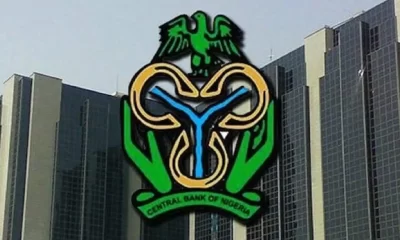
 Business3 days ago
Business3 days agoOn The Central Bank Of Nigeria’s Circular Relating To The Collection And Remittance Of The National Cybersecurity Levy

 News1 week ago
News1 week agoOrganisers announce date for inaugural Yoruba World Heritage Cultural Festival in Canada
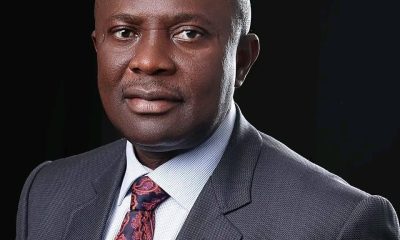
 Politics2 days ago
Politics2 days agoReactions as Tinubu appoints Emeka Woke, CEO, Ogun-Osun River Basin Dev Authority, after resignation from Fubara’s cabinet in Rivers

 Latest7 days ago
Latest7 days agoWike Vs Gov Fubara: Again Rivers State and The ‘Familiar Spirit’ Tussle
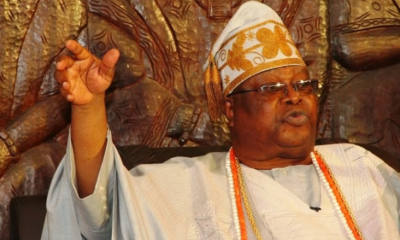
 Featured2 days ago
Featured2 days agoTinubu confers national honour on Awujale of Ijebu
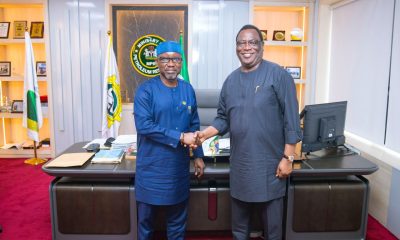
 Business2 days ago
Business2 days agoNCDMB co-chair, Ekpo meets Exec Sec, pledges support for local content programmes

 Business6 days ago
Business6 days agoTransition Train, partners Patrick Ogunjobi & Co, forges path to financial freedom for Nigerians

 Latest2 days ago
Latest2 days agoOne shot as detained soldiers break out of ‘overcrowded cells’ to protest poor feeding




